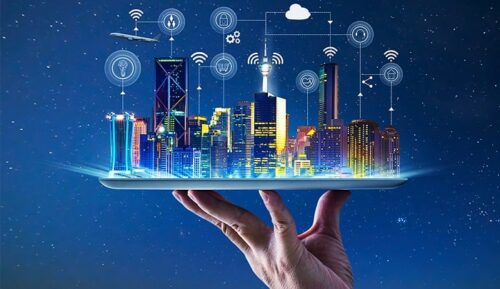ADVANCEMENTS IN SMART BUILDING SERVICES TECHNOLOGY
Advancements in Smart Building Services Technology
In recent years, the world has witnessed a significant transformation in the way buildings are designed, constructed, and managed. This evolution is primarily attributed to the rapid advancements in smart building services technology. As we delve into the 21st century, the integration of cutting-edge technologies has revolutionized the concept of smart buildings, enhancing their efficiency, sustainability, and overall user experience. In this article, we will explore the notable advancements in smart building services technology that are shaping the future of architecture and facility management.
IoT and Building Automation
The Internet of Things (IoT) has emerged as a game-changer in the realm of smart building services. By connecting various devices and systems within a building to the internet, IoT enables real-time data collection and analysis. This data can be leveraged to optimize energy consumption, enhance security, and improve the overall functionality of a building. For instance, smart thermostats, lighting systems, and HVAC (Heating, Ventilation, and Air Conditioning) systems can now be seamlessly controlled and monitored through smartphones, contributing to significant energy savings and user comfort.
Artificial Intelligence (AI) and Machine Learning
Artificial Intelligence and Machine Learning algorithms are being harnessed to make smart buildings even smarter. These technologies enable buildings to learn from data patterns, adapt to user preferences, and predict maintenance needs. AI-powered systems can optimize energy management by analyzing historical usage data, weather forecasts, and occupancy patterns. Furthermore, AI-driven chatbots and virtual assistants are being employed to enhance the building’s interaction with occupants, answering queries, scheduling services, and providing personalized experiences.
Enhanced Security and Access Control
Security is a paramount concern in modern buildings, and advancements in technology have revolutionized how it is managed. Smart building services now incorporate advanced biometric authentication systems, facial recognition, and access control solutions. These technologies not only enhance security but also streamline access for authorized personnel. In addition, AI-powered video surveillance systems can identify suspicious behavior and alert security personnel in real-time, significantly reducing response times in emergency situations.
Sustainability and Energy Efficiency
Sustainability is at the forefront of smart building technology. The integration of renewable energy sources, such as solar panels and wind turbines, combined with energy-efficient systems, helps reduce a building’s carbon footprint. Furthermore, smart building management systems can automatically adjust lighting, heating, and cooling based on occupancy and natural light levels, leading to substantial energy savings. Real-time monitoring of energy usage allows for data-driven decisions to optimize sustainability efforts continually.
Predictive Maintenance
Traditional maintenance practices are evolving into predictive maintenance through the use of IoT sensors and AI algorithms. These systems monitor the condition of critical equipment and infrastructure, such as elevators, HVAC systems, and electrical panels. By analyzing data trends, predictive maintenance can identify potential issues before they become costly problems, reducing downtime and maintenance costs while improving overall system reliability.
Enhanced User Experience
Smart building technology is enhancing the user experience within these spaces. Occupants can now control their environment with ease, adjusting lighting, temperature, and even room layout preferences through smartphone apps or voice commands. Furthermore, smart buildings can provide occupants with real-time information on parking availability, building services, and even suggest nearby amenities, creating a more convenient and enjoyable experience.
Conclusion
Advancements in smart building services technology are reshaping the way we interact with the built environment. These innovations are improving energy efficiency, enhancing security, and providing occupants with a more seamless and comfortable experience. As the technology continues to evolve, we can expect even more exciting developments in the realm of smart buildings, further optimizing their sustainability, efficiency, and user-friendliness. Smart building technology is not just a trend; it’s a transformative force that is here to stay, contributing to a more connected, sustainable, and intelligent future.


